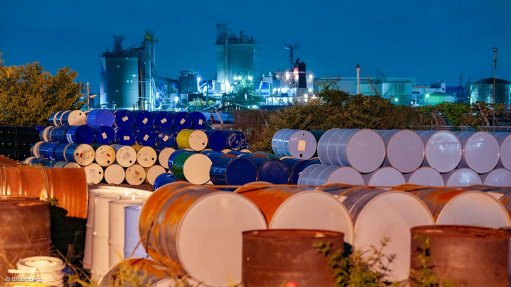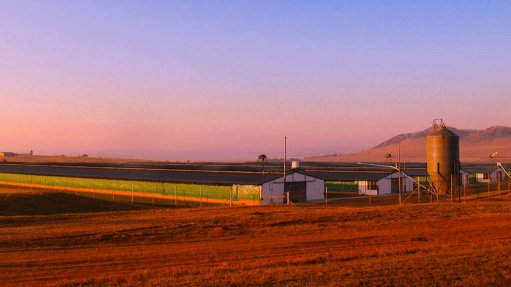Telcos feeling pressure of sustained levels of loadshedding
As South Africa’s persistent loadshedding shows no signs of abating, the country’s telecommunications companies are having to ramp up mitigation measures in an effort to keep consumers connected.
State-owned power utility Eskom continues to implement staggered power cuts in various stages in an effort to maintain the national electricity grid, with data from loadshedding tracking application EskomSePush showing that the planned power cuts were implemented on a total of 43 days, or 1 029 hours, during 2023, as at February 13.
In 2022, loadshedding increased significantly to 157 days, or 3 776 hours, after recording 48 days, or 1 153 hours, in 2021, following a progressive increase from six days, or 41 hours, in 2018, 22 days, or 534 hours, in 2019, and 35 days, or 844 hours, in 2020.
The ongoing loadshedding is significantly hampering the telecommunications companies’ ability to provide consistent, reliable communications services.
“South Africa’s protracted and more frequent power cuts are having a significantly negative impact on the country’s mobile network operators,” says Vodacom Group CEO and Association of Communications and Technology (ACT) chairperson Shameel Joosub.
Despite the industry having proactively spent billions of rands on backup power solutions for network stability and continuity, customers are increasingly becoming frustrated when they experience a drop in network performance during the higher levels of loadshedding, he says.
Vodacom spokesperson Byron Kennedy explains that during power interruptions the towers remain functional for as long as the batteries last or the backup generator keeps running and, while network operators have extensive battery backup facilities at a significant proportion of their base stations, the higher stages of loadshedding prevent the batteries from recharging fully.
The installed batteries, which generally provide six to 12 hours of capacity, depending on the site, often require between 12 and 18 hours of recharging once depleted – a timeframe that the Stage 4 and higher loadshedding schedules do not allow for.
“Once power is fully depleted, the tower stops working entirely and, depending on the configuration of nearby towers, may result in intermittent or no service.”
Further, since Eskom ramped up loadshedding in 2021 and 2022, South Africa’s mobile operators have seen a spike in incidents of theft and vandalism of their infrastructure, as criminals and criminal syndicates find it easier to access the infrastructure under the cover of darkness.
It is estimated that network providers suffer hundreds of millions of rands worth of damage to its base stations each as a result of theft and vandalism.
However, this does not occur during power outages only. “What we are finding through our investigations is that organised syndicates are coming up with unique approaches to commit this crime – not just during loadshedding,” says Kennedy, pointing out that on average 600 incidents a month are recorded where base station sites have been impacted on by theft or damage, and on a daily basis local network providers experience multiple break-ins at base station sites.
Telecommunications groups continue to work to mitigate these challenges during the various stages of loadshedding, changing the way the companies operate when it comes to ensuring towers stay online and futureproofing any future infrastructure against risks such as loadshedding.
Mobile operators have invested significantly into battery, generator and alternate backup power solutions at the tens of thousands of base station sites across South Africa to enhance network resilience during loadshedding and deploying “backups for the backup”, using thousands of mobile generators to power sites and recharge batteries at critical towers, data centres and customer service centres.
Network operators are also deploying 24-hour technician teams dedicated to monitoring and restoring power at sites, while tighter security and surveillance measures have been implemented by network operators to protect sites from battery and generator theft and vandalism.
All these efforts incur increased operational costs for network operators.
During Stage 5 and Stage 6 loadshedding, MTN uses 450 000 ℓ of fuel a month after deploying more than 2 000 generators to counter the impact of higher stages of loadshedding, while Vodacom said it had spent an estimated R2-billion just on batteries over the past two years.
Telkom used over four-million litres of diesel from November to January to keep network sites online.
“The costs go beyond the current battery backup capacity. We need to factor in the cost to repair and replace stolen batteries and security measures to prevent future vandalism,” Telkom said in response to questions posed to it by Engineering News & Mining Weekly.
Kennedy says that Vodacom is proactively doing all it can to mitigate the effects of widespread loadshedding, including working closely with Eskom to find a renewable- energy solution.
“We have an in-principle agreement with Eskom to pilot a programme that would see Vodacom South Africa source its electricity from renewable independent power producers and contribute this into the national grid.”
Vodacom will source its electricity from non-Eskom sources if the pilot is successful, with the power utility still providing transmission infrastructure and services.
The success of the pilot will provide Vodacom with renewable power and a blueprint for other South African corporates to replicate, which will enable more companies to add capacity to the grid amid the power crisis.
MTN South Africa corporate affairs and sustainability chief Jacqui O’Sullivan says that the group is “working around the clock” to protect connectivity, and is exploring practical and innovative solutions to the power crisis, alongside its own aggressive roll-out of batteries, generators and alternative power supplies.
“Despite having placed thousands of batteries at our sites across the country, the efficacy of those batteries reduces once we pass Stage 4 loadshedding. MTN upgraded its battery backup solutions on over 80% of the sites in 2022 and is currently deploying more additional batteries,” she says, adding that MTN has also upgraded most of its sites over the last three years to mitigate the impact of loadshedding and continues to modernise its network across the country.
Further, while MTN has made progress in some areas to reduce incidents of battery theft and vandalism of infrastructure, the challenge persists in many other parts of the country.
“Theft of generators is another concern, along with the damage that is done to tower infrastructure when criminals attempt to access batteries. Quite often the damage inflicted on towers during robberies requires extensive repairs, and not just simple battery replacements.”
MTN is also investing in additional measures to further “harden” its infrastructure against theft and vandalism, while also bringing in additional security in high-risk areas.
The constant pressure of power outages requires 24-hour monitoring, with MTN putting power contingencies in place in all provinces.
The company also established “war rooms” for each region with dedicated staff and network partners, focused on restoring major transmission infrastructure and base stations, in the face of severe loadshedding; the deployment of additional emergency generators and the optimisation of the existing fleet of MTN mobile generators; the withdrawal of field maintenance teams to allow them to be redeployed to exclusively focus on site restorations; and the delivery of fuel to all critical facilities to ensure all MTN data centres remain operational.
It has also deployed software-defined power-saving features on base stations which are implemented during higher stages of loadshedding to extend power autonomy on site.
MTN is also reaching out to small businesses to supply generators for its operations, inviting all businesses with generators to become potential suppliers to MTN.
Telkom, in response to questions asked by Engineering News & Mining Weekly, says that it has solid business continuity plans in place to mitigate against the severe effects of prolonged loadshedding.
“Despite having invested in backup power for most of our sites, including the use of standby generators and backup batteries, the sustained higher stages of loadshedding currently being experienced significantly impact on our cost of doing business, with recharge cycles for backup batteries significantly lower and operating costs soaring on inputs such as diesel and the additional manhours to keep sites operational.”
The risk of depleting battery backup remains and access to fibre within a home requires an uninterrupted power connection, such as a backup or alternative power solution.
“Understanding that affordability of alternative energy for most households in South Africa is still an unattainable dream, Telkom has started providing more affordable plug-and-play router backup solutions that can be purchased in our stores,” it says.
Overall, the industry is required to spend a significant amount of money to fully mitigate against Stage 5 and Stage 6 loadshedding, which ultimately would negatively impact on the cost to communicate.
The funds spent on batteries, generators and diesel would be better spent on programmes that deliver significantly more value to customers in the long term rather than simply keeping their networks running, says Joosub.
“For instance, these funds would have been better spent addressing the digital divide by accelerating rural coverage across the country and assisting customers that are battling to make ends meet because of the rising inflationary pressures.”
He says that, as connectivity is critical to the country’s sustainable development, there is a need to work together as the public and private sectors to find solutions to South Africa’s national power crisis.
“ACT has been engaging with pertinent stakeholders, including national government, through the Department of Mineral Resources and Energy, the Association of Municipal Electricity Utilities, regulators such as the National Energy Regulator of South Africa and Eskom to ensure that South Africa finds sustainable countermeasures [against] the impact of loadshedding experienced by all,” says ACT CEO Nomvuyiso Batyi.
“The effects of loadshedding are far- reaching and will ultimately hinder any progress on inclusive digital transformation in the country and exacerbate the digital divide that exists.”
Comments
Press Office
Announcements
What's On
Subscribe to improve your user experience...
Option 1 (equivalent of R125 a month):
Receive a weekly copy of Creamer Media's Engineering News & Mining Weekly magazine
(print copy for those in South Africa and e-magazine for those outside of South Africa)
Receive daily email newsletters
Access to full search results
Access archive of magazine back copies
Access to Projects in Progress
Access to ONE Research Report of your choice in PDF format
Option 2 (equivalent of R375 a month):
All benefits from Option 1
PLUS
Access to Creamer Media's Research Channel Africa for ALL Research Reports, in PDF format, on various industrial and mining sectors
including Electricity; Water; Energy Transition; Hydrogen; Roads, Rail and Ports; Coal; Gold; Platinum; Battery Metals; etc.
Already a subscriber?
Forgotten your password?
Receive weekly copy of Creamer Media's Engineering News & Mining Weekly magazine (print copy for those in South Africa and e-magazine for those outside of South Africa)
➕
Recieve daily email newsletters
➕
Access to full search results
➕
Access archive of magazine back copies
➕
Access to Projects in Progress
➕
Access to ONE Research Report of your choice in PDF format
RESEARCH CHANNEL AFRICA
R4500 (equivalent of R375 a month)
SUBSCRIBEAll benefits from Option 1
➕
Access to Creamer Media's Research Channel Africa for ALL Research Reports on various industrial and mining sectors, in PDF format, including on:
Electricity
➕
Water
➕
Energy Transition
➕
Hydrogen
➕
Roads, Rail and Ports
➕
Coal
➕
Gold
➕
Platinum
➕
Battery Metals
➕
etc.
Receive all benefits from Option 1 or Option 2 delivered to numerous people at your company
➕
Multiple User names and Passwords for simultaneous log-ins
➕
Intranet integration access to all in your organisation





















